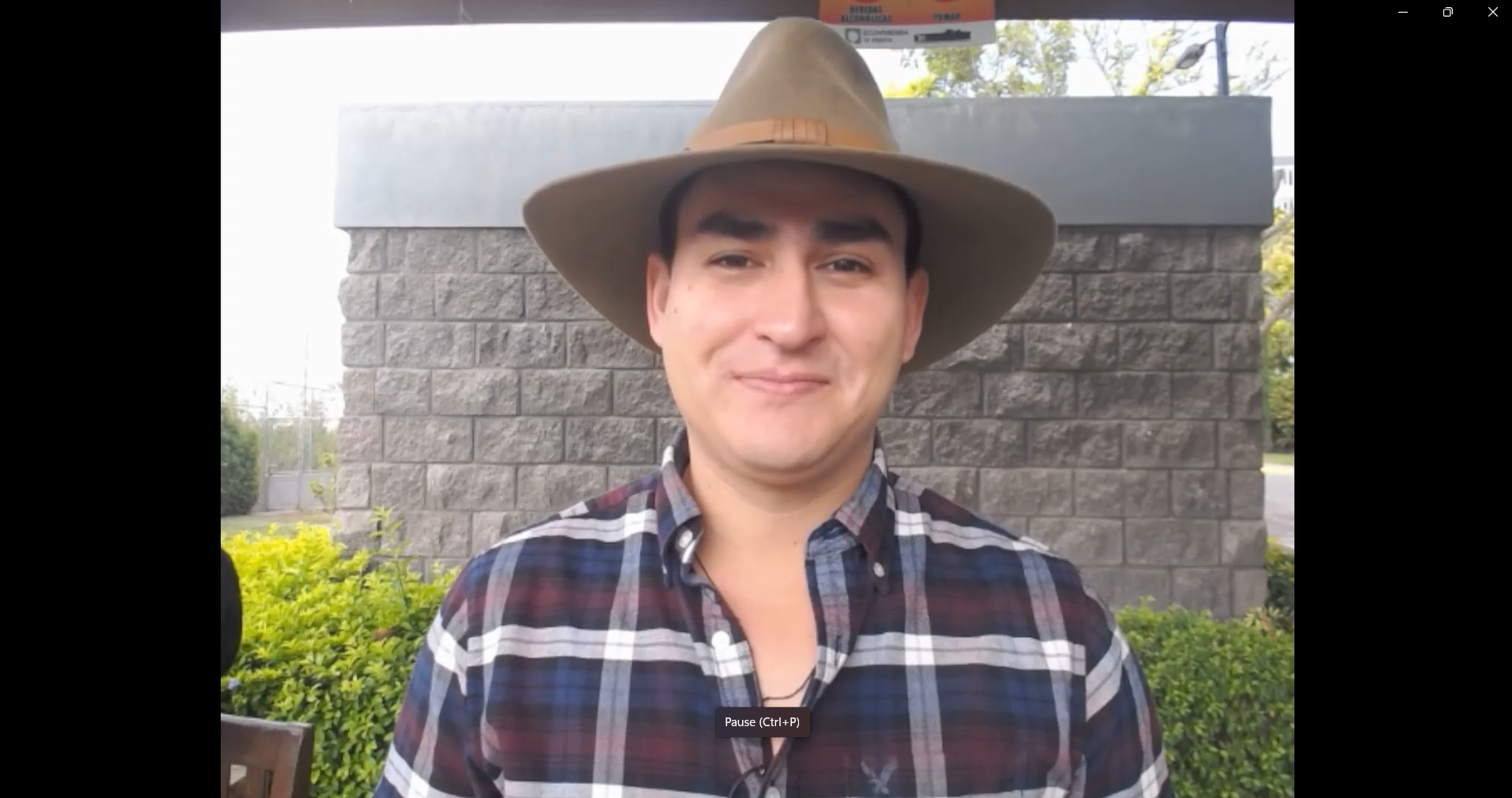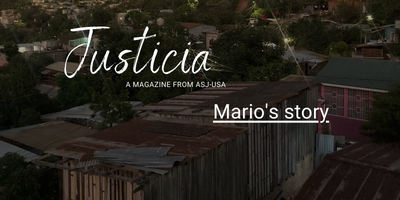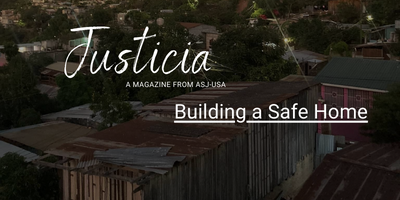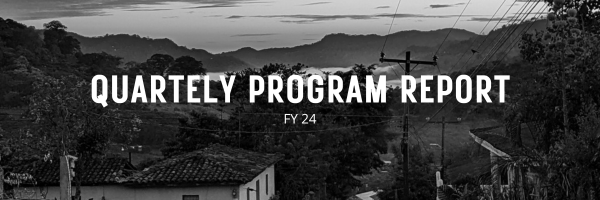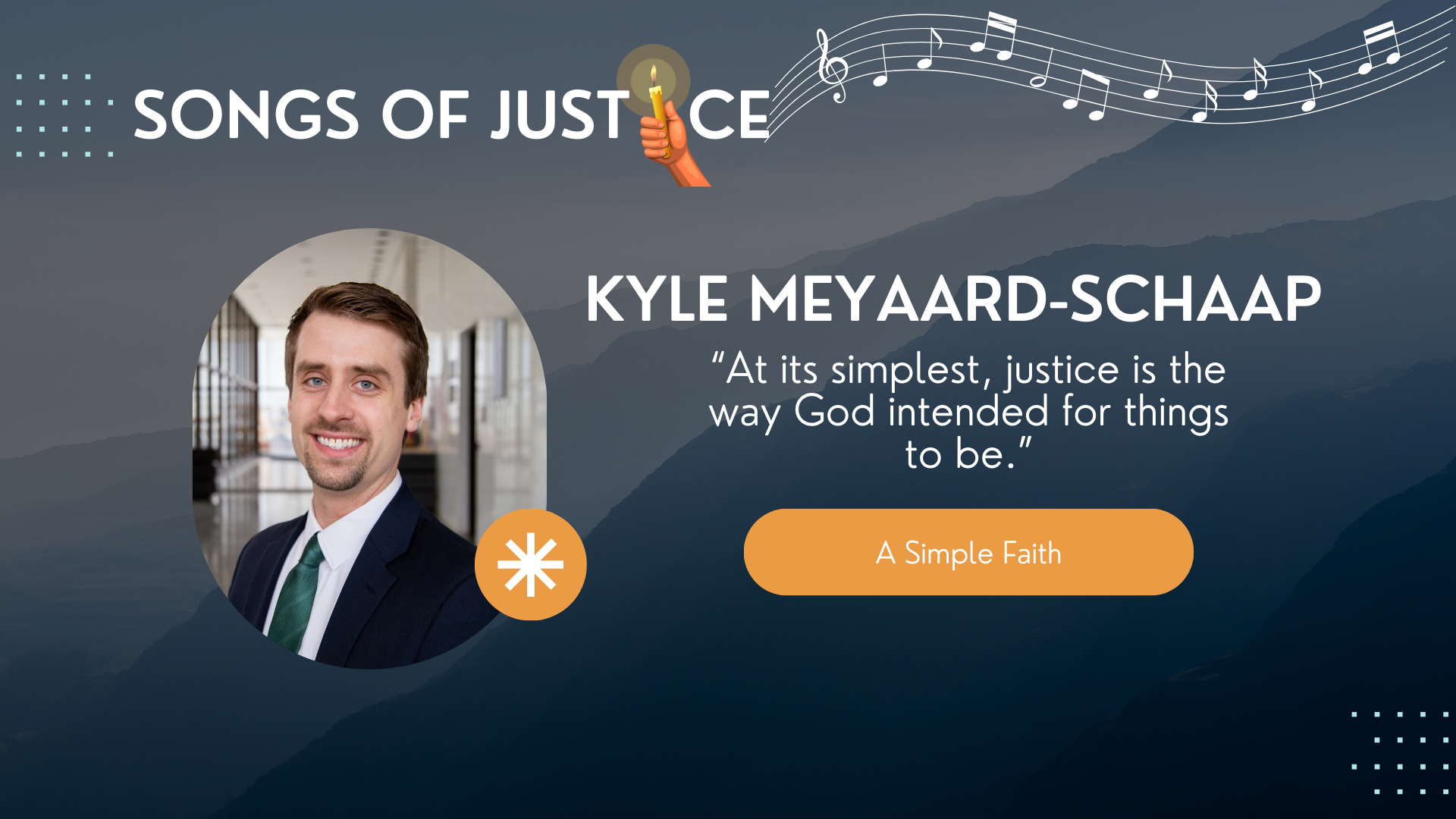We have a new name! We are ASJ, and we are for a more just society. Learn more >
We are ASJ, and we are for a more just society. Read more about our partnership>

They were all there on the other side of the door — the judges, the prosecutor, the defense attorneys, and the media. And he was out there also. With two state-appointed defense attorneys in brown suit coats seated to his left, he waited still and silent during the court proceedings. Today, the judges would decide whether this man was guilty of raping a 14-year-old girl three years ago. Waiting in a private room behind a wooden door in the front of the courtroom, Sandra* already knew without a doubt that he was guilty. She was that girl.
Now 17 years old, Sandra was one of dozens of women and girls that had accused the defendant, Hugo, of raping them. In the room with Sandra was an ASJ (formerly known as AJS) psychologist, Sofia*, who had been a major source of support for Sandra, not only today but throughout the whole process. Soon, the audience of the court would be dismissed so that Sandra could give her testimony in privacy. In the meantime, she waited.
Sandra waited as a psychologist took the witnesses stand and said that Sandra exhibited the symptoms of posttraumatic stress disorder. She waited as the prosecutor explained how Sandra was on the way home from her younger sister’s school when Hugo encountered her and threatened her with a pistol. She waited as the judges listened to how Sandra kept silent for months about what happened, while her mother was ill during a difficult pregnancy.
In the trial’s audience sat Felipe*, an ASJ investigator. Three years ago, Felipe was working to track Hugo down on the streets of the Honduran capital city. Today, he waited to see if his hard work would pay off, and if one young girl, Sandra, would see justice.
It was 2009 when the Honduran government got its first report from one of Hugo’s victims. At the time, Felipe had not yet joined ASJ and was an investigator with the government, specializing in cases of child sexual abuse. It wasn’t until 2011, when other reports started coming in, that Felipe and his colleagues noticed the reports had striking similarities. There were similarities in the location (a poorer part of the city), the attacker’s methods (using abandoned houses and plots of land), the survivors (underage girls and young women), the physical description of a man with an arm tattoo and stomach scar, and other information that caused Felipe and his colleagues to realize there was a single individual committing all these attacks.
Felipe and the other investigators went to the streets to track down the attacker, but progress was slow. They had no name, and the physical description they had could match multitudes of men.
“He could have passed in front of us, and we would not have recognized him,” Felipe said.
On top of this, Hugo tended to know very well the areas where he committed the rapes and how to navigate neighborhoods to avoid detection. Despite the Honduran media giving him the nickname “crazy Hugo,” Felipe said that Hugo was actually pretty intelligent.
Realizing the gravity of this case and that they were going to need help to pull it off, the Honduran government investigators reached out to ASJ for assistance, because they knew that ASJ had investigators and lawyers with the necessary expertise and resources.
Together, the team organized interviews, examined crime sites, and came up with an approach of doing undercover patrols in strategic areas. Each group would have with them one of the victims who had come forward. They’d alternate which victims accompanied the groups, in order to lower suspicions.
Still, this method was frustratingly slow. At one point, one of the girls and her mother spotted Hugo when they weren’t with the investigators. They tried following him through the winding streets but lost him when he went down an alley.
The investigation dragged on for seven months, until May 2012, when a breakthrough happened. A community member passed on the name of a man who was rumored to be the serial rapist. Finally, with a name to work on, the group used a government database to also dig up a photo.
The day after they got the photo, when the team was back on the street, something unexpected happened. A brave 13-year-old girl who was accompanying the group spotted Hugo. The group tracked him down, and police moved in to arrest him as he left his house — where they later found clothes that survivors said he was wearing during his attacks.
It’s estimated that Hugo raped more than 40 women and girls and has either been convicted or faces charges from at least 24 survivors. Not only did Hugo match the photo that the investigators had gotten the day before, but the first 10 survivors that were summoned identified him as the rapist. As the news media started covering the arrest, more survivors recognized Hugo and came forward.
After his arrest, Hugo went to prison, and the judicial process began. In November 2013, he received his first guilty sentence.
ASJ psychologists were working with Sandra and other survivors, while ASJ lawyers and investigators helped shore up the cases of the public prosecutor against Hugo. Felipe changed jobs, leaving his job with the police to join ASJ as an investigator.
Things were going well — until March of 2015 when Hugo escaped from prison.
It’s not clear yet how Hugo managed to escape, but once he did, ASJ didn’t hesitate to act.
ASJ decided to make Hugo’s escape a major media story. There wouldn’t be anywhere in Honduras that he’d be able to show his face, and the government knew that the whole country was watching to see whether or not they could catch an escaped convict.
ASJ quickly alerted Honduras’ major media outlets and invited them to the ASJ office, where ASJ’s leaders explained Hugo’s past, how to identify him, and urged that his capture be made a priority.
That night, Hugo’s escape was the main story on television news broadcasts, and it was a front-page newspaper story the next morning. ASJ also made a graphic on how to identify Hugo, which was shared thousands of times on Facebook.
For Felipe, the news of Hugo’s escape was difficult after all the work that went into his first arrest. For the girls who Hugo had raped, the escape made them afraid that Hugo may come after them again.
Tracking down Hugo would be much different this time. The plan was to monitor the telephones of Hugo’s mother, sister, and daughter (Hugo had married twice and had five daughters).
After two days of monitoring the mother’s phone, a call came in from Mexico. On the other end of the line was Hugo, asking his mother for money.
Mexican officials were quickly notified. Using information from the phone calls, they were able to arrest him in the southern Mexican municipality of Tapachula. Within 15 days on the run, Hugo had been caught, and, soon after, he was returned to Honduras.
“I’m sure that if ASJ didn’t help raise the alert, Hugo would still be free in Mexico,” Felipe said.
Sandra’s case was the first one Hugo faced after being returned to Honduras.
Back in the courtroom, the time for Sandra’s testimony had come. Felipe and everyone else in the audience were dismissed by the judges. Hugo, dressed in a green and white striped polo and jeans, was placed in what looked like a wooden telephone booth with a one-way mirror on the front. This booth ensured Hugo couldn’t communicate to Sandra as she gave her testimony.
Bravely, Sandra recounted the events that happened during what was supposed to be an eight-minute commute home after meeting with her younger sister’s teacher on an April afternoon in 2012.
After her testimony, Sandra left the courtroom. The judge allowed the audience back into the court, and Hugo came out of the booth. Sandra’s mother testified how Sandra didn’t say anything about the rape during the months of the mother’s difficult pregnancy. With her shoulders shaking yet her voice bold, Sandra’s mother explained that when she found out about what happened, they reported the rape. She also shared about how Sandra recognized Hugo on TV after his first arrest.
Following the mother’s testimony, the judge put the court in recess. ASJ’s staff — the psychologist, lawyer, and investigator — took Sandra’s family out for lunch, and the family expressed their gratitude for the support they had received in the past three years.
As lunch concluded, Sandra expressed her gratitude one more time with a warm smile and a hopeful glint in her eyes; her proud parents stood at her side. That morning they let the truth be told; they stood strong for justice. A guilty conviction was all but certain — and an hour later the judges confirmed the same.
After the conviction, ASJ lawyer Martín* paused outside the courthouse to take in the moment. On this sunny afternoon, following years of hard work, there was now a second guilty verdict against Hugo. But the work was still not over. ASJ’s psychologists will continue working with Sandra and other survivors to help them heal, and Martín will continue his work to fight for justice in the courts in the remaining cases — including a case against Hugo that will commence in June and will include charges for abusing 12 girls.
For Martín, Felipe, and the ASJ team, Sandra’s case was an important victory for justice — and, hopefully, one of more to come.
Background:
This story is about the work of ASJ’s Rescue project, which uses a team of investigators, lawyers, and psychologists to work for justice and healing for children who are survivors of sexual abuse. For more about the Rescue Project, click here.
*Name changed to protect identity

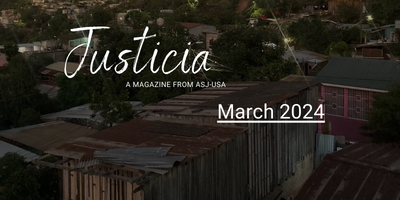
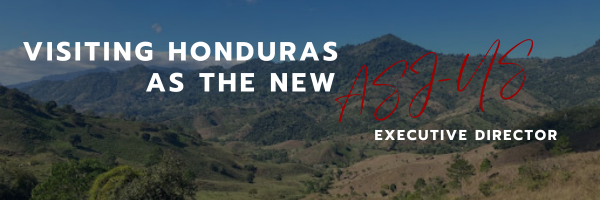
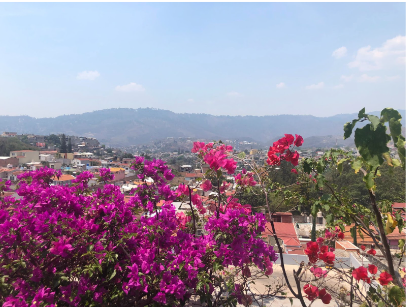
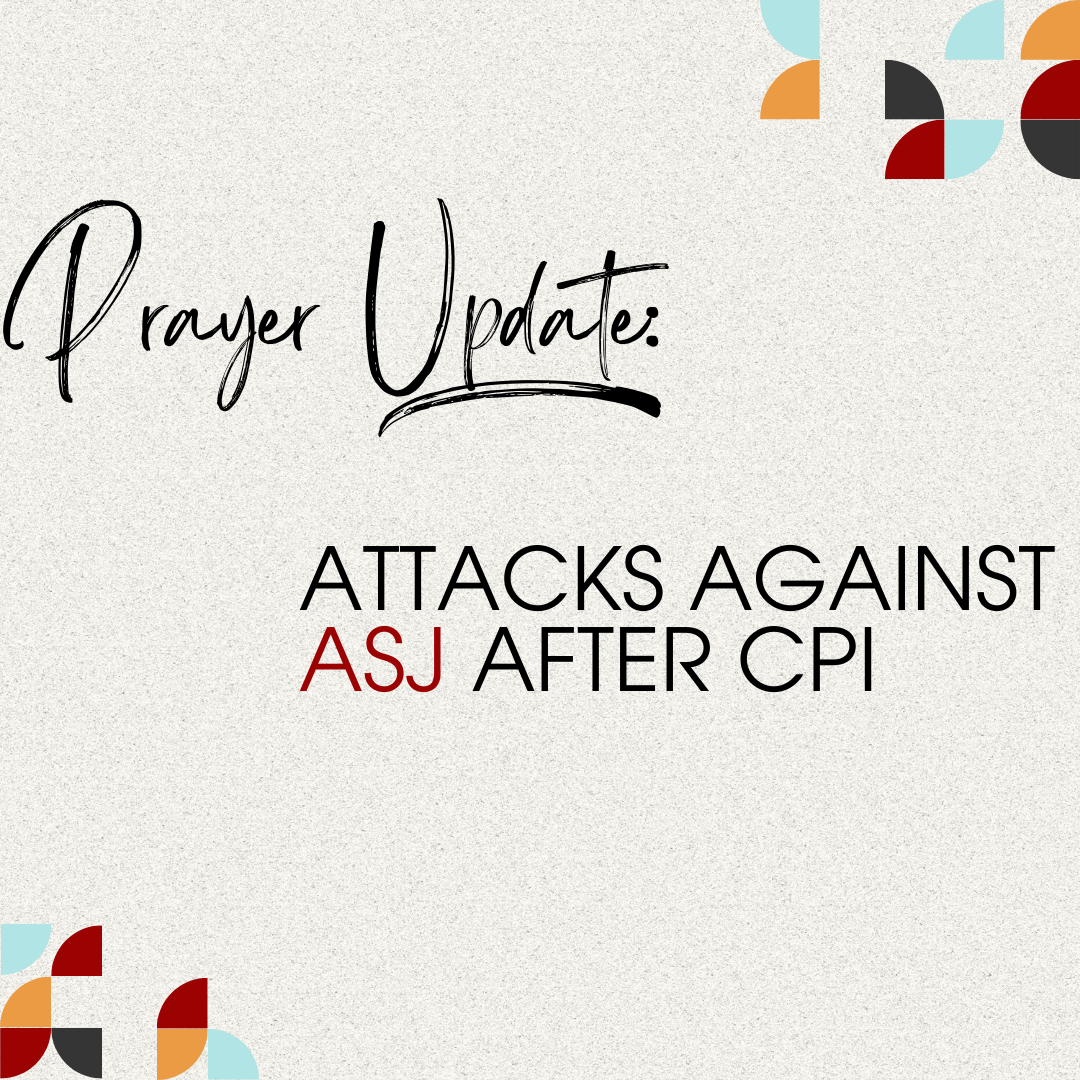
Association for a More Just Society - U.S. (ASJ-US)
PO Box 888631, Grand Rapids, MI 49588
| info@asj-us.org | 1 (800) 897-1135
ASJ (formerly known as AJS) changed our name in 2021 to reflect our partnership with Honduras and our Honduran roots. Learn more.



